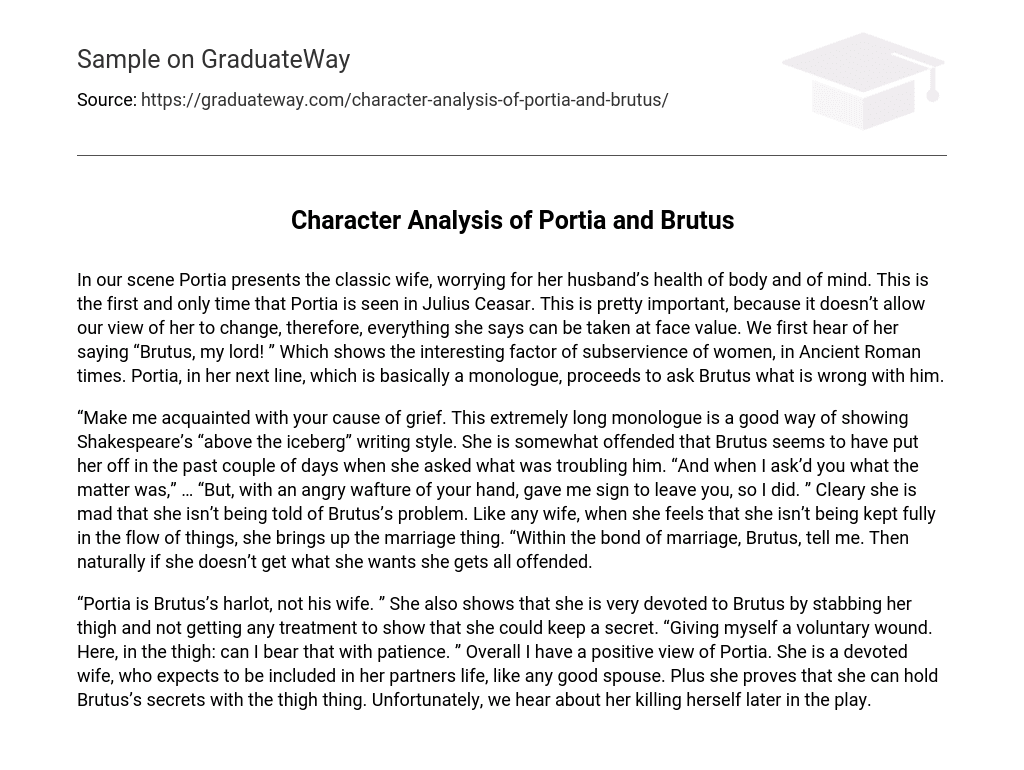Portia, in this scene of Julius Caesar, represents the typical concerned wife who is worried about her husband’s physical and mental health. It is important to note that this is Portia’s only appearance in the play, which allows us to interpret everything she says literally without any alterations in our perception of her. She begins by addressing Brutus as “my lord,” highlighting the subordinate role of women in ancient Rome. Following this, she proceeds to deliver a monologue wherein she questions Brutus about his worries.
“Please inform me of the reason for your sadness. This lengthy monologue serves as a perfect example of Shakespeare’s writing style that often goes beyond surface-level emotions. She is somewhat upset that Brutus has been avoiding her lately when she asked about his troubles. ‘And when I asked you what was wrong’… ‘But instead, you angrily dismissed me with a wave of your hand, indicating that I should leave, and so I did.’ Clearly, she is angry about not being informed about Brutus’s problem. Like any wife, when she feels excluded from important matters, she brings up the topic of their marriage. ‘As your wife, Brutus, please tell me.’ Naturally, if she doesn’t get the information she desires, she becomes even more offended.”
Portia’s loyalty to Brutus is evident in her willingness to inflict a self-inflicted wound on her thigh instead of seeking medical treatment, demonstrating her commitment to keeping secrets. Despite being referred to as Brutus’s harlot instead of his wife, I view Portia positively. She is a devoted spouse who desires inclusion in her partner’s life. Furthermore, she proves her trustworthiness by enduring the physical pain. Sadly, we learn of her tragic fate of taking her own life later in the play.





